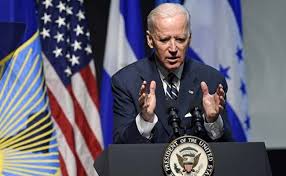ISTANBUL (Reuters) – Turkey and the United States smoothed over some differences in the fight against Islamic State during a weekend visit by U.S. Vice President Joe Biden, but the talks heralded little in the way of deeper military cooperation between the NATO allies.
Turkey has been a reluctant partner in the U.S.-led coalition against Islamic State, refusing to take a frontline military role despite its 1,200 km (750-mile) border with Iraq and Syria and thereby intensifying Western concern that it is a weak link in the struggle against the insurgents.
Biden ended two days of meetings in Istanbul with no guarantee that Turkey would step up its military cooperation by, for example, allowing the use of Turkish air space or a U.S. base in its southern town of Incirlik for coalition air strikes.
Turkish leaders, in turn, received no signal that their demands for Syrian President Bashar al-Assad’s removal from power or that Washington establish a no-fly zone in Syria would be met.
But officials on both sides said the differences were more about strategy than objectives, and the meetings – including a four-hour discussion between Biden and Turkish President Tayyip Erdogan – had been an opportunity to clear the air and set a sometimes acrimonious relationship on a surer footing.
“They didn’t sit there and sign their names on the bottom line on a whole host of agreements. But actually, I think we came to a much greater clarity about where we need to go from here,” a senior U.S. official said following the talks.














